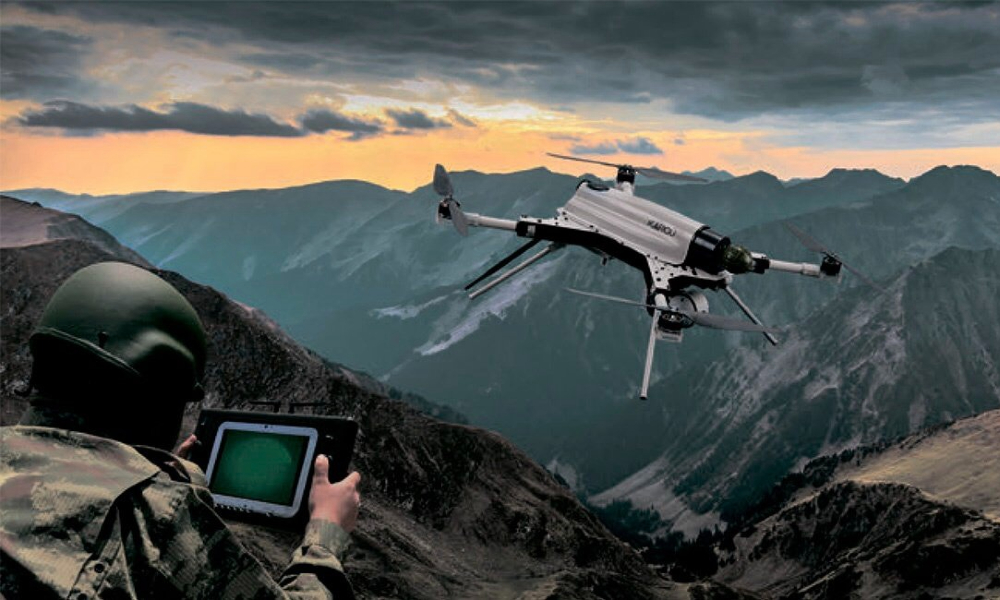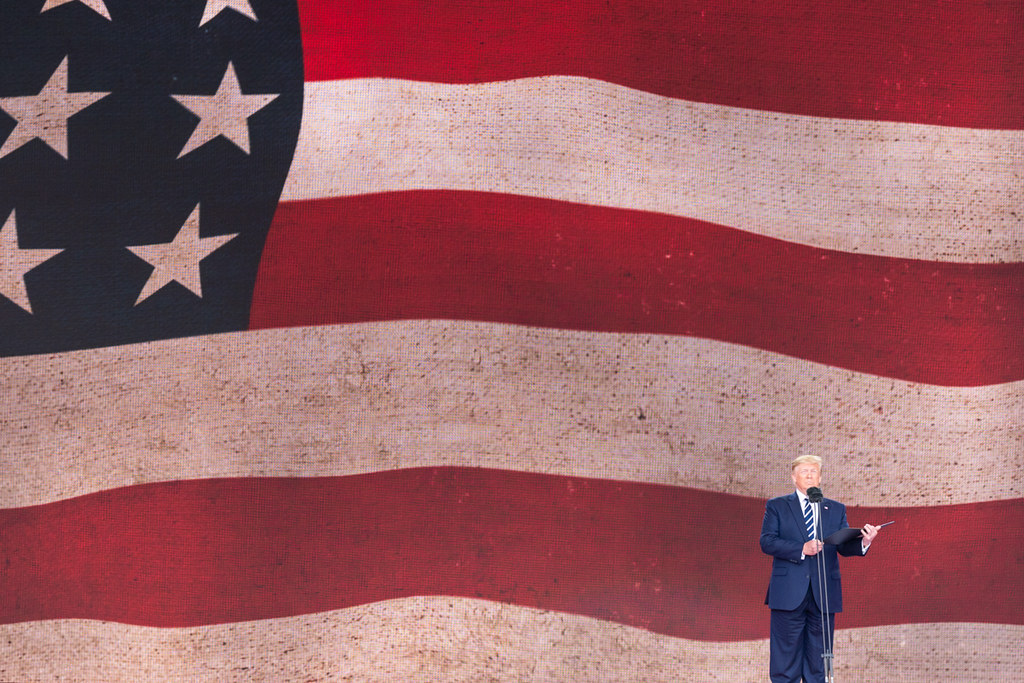Turkey Might Not Like the West, But Needs It
Editor’s Note: This article originally appeared on Order from Chaos.
Published by The Lawfare Institute
in Cooperation With

Editor’s Note: This article originally appeared on Order from Chaos.
When President Trump sanctioned two Turkish ministers—an unprecedented measure involving a NATO ally—and announced the doubling of trade tariffs early in August, he further aggravated the steadily deteriorating U.S.-Turkish relationship. The moves came after the Turkish government refused to allow Pastor Andrew Brunson, who is facing spurious espionage and terrorism charges, to return to the United States. Turkey’s currency, already fragile, went into a tailspin, and has lost nearly half its value compared to the beginning of the year.
Meanwhile, freshly re-elected President Recep Tayyip Erdoğan has rallied his supporters—and even the main opposition People’s Republican Party (CHP)—around resistance. In an op-ed he penned for the New York Times, Erdoğan threatened that if U.S. measures were not reversed, Turkey would “start looking for new friends and allies” and alluded to seeking a new strategic orientation away from the West.
It’s highly unlikely that Erdoğan would do that. Instead, what is much more likely is a tug of war between structural factors binding Turkey to the West and a constant drumbeat fed to the public of wanting to “exit the West.” The growing disarray within the West, fueled by democratic regression in its ranks and weakening U.S. leadership in the post-WWII rules-based order, will further complicate the picture by making the West less appealing to Turkey. The outcome will be a Turkey that steadily drifts away from the West, but stops short of actually exiting the trans-Atlantic alliance.
Democracy Stumbles
Erdoğan’s threats to break away from the West are not new, and are closely linked with the weakening of democracy in Turkey.
In the wake of the Gezi Park protests in 2013—which erupted in reaction to growing authoritarianism and media repression in Turkey—Erdoğan reached out to strongman Russian President Vladimir Putin (in that case, specifically seeking help with Turkey’s membership in the Shanghai Cooperation Organization). Erdoğan suggested that he would be prepared to give up Turkey’s ambition to join the EU, long regarded as a symbol of Turkey’s Western orientation. Turkey’s relations with Putin steadily warmed, especially after the issue of sanctions—which Russia imposed after Turkey downed a Russian warplane over Syria—was resolved in June 2016. Following the July 2016 coup attempt in Turkey, Putin extended his unequivocal support for Erdoğan, setting the scene for deepening relations.
In contrast, Turkey’s more long-standing allies—the United States and European Union—hesitated before condemning the coup attempt. This fueled Erdoğan’s deep mistrust towards them and largely explains his rhetoric ever since. Amid the deterioration in relations, Turkey became the first NATO member to buy a sophisticated weapons system from Russia (S-400 missiles) and to have Russia build a nuclear power station in the country.
The introduction of emergency rule after the coup attempt and the increasing repression that followed further complicated Turkey’s relations with the West. As EU voices against Turkey’s membership in the bloc became louder, Erdoğan whipped up nationalist fervor against the EU. His rhetoric gained traction domestically, worsening the situation. In a referendum in April 2017, he sealed enough support to transform Turkey’s long-standing parliamentary system into a presidential one (one without the typical democratic checks and balances). After winning the presidential election in June 2018, he essentially consolidated one-man rule.
Notably, none of this appears to have hurt Erdoğan’s relations with Trump: As recently as this July, the two leaders fist-bumped at the NATO summit in Brussels. The move was generally taken as a sign of the bond between the two populist leaders with scant tolerance for liberal democratic values.
Forces from Abroad
Turkey’s drift is not solely driven by domestic developments. The weakened state of liberal democracy in the EU and the United States has had an impact, too.
In the eyes of the Turkish public, both have lost the high ground as the shining light on a hill for liberal democracy. Instead, illiberalism appears to be increasingly in fashion. Freedom House noted in its 2018 “Freedom in the World” report that the U.S. role as a champion of democracy has eroded “amid an accelerating decline in American political rights and civil liberties.” The EU has so far not been able to stop—let alone reverse—democratic regression in a number of Central and Eastern European countries, especially Hungary and Poland. This worrying picture extends to Western Europe, with the growing presence of right-wing populist parties in the parliaments of several countries such as Denmark, Finland, Germany, and governments in Austria and Italy.
This picture is aggravated by the overall fragmentation in the trans-Atlantic community: Trump, for his part, had once called NATO “obsolete” and the EU a “foe.” Furthermore, the trade wars that he has unleashed on both Turkey and the EU is forcing them to seek partnerships with China, Russia, and Iran, fueling Turkey’s drift.
An Inconvenient Truth: Turkey Needs the West
And yet, Erdoğan was careful not to rupture relations with the United States, even at the height of the recent crisis. He repeatedly cited the need for diplomatic dialogue to resolve the crisis, even as he was ordering counter-sanctions on U.S. officials and products. Likewise, Minister of Foreign Affairs Mevlüt Çavuşoğlu emphasized dialogue and dispatched diplomatic delegations to Washington. Also notably, Erdoğan chose—away from public scrutiny—to engage a pillar of the international liberal order, the World Trade Organization (WTO), to try to resolve his trade war with Washington. In an effort to counter allegations that Turkey was undermining the interests of the Western alliance, Turkey’s ambassador to the United States wrote in the Wall Street Journal that Turkey remains a committed member of NATO.
At the same time, commentators in pro-government media and high-level officials saw the crisis with the United States as an opportunity to revive relations with the EU. The whiplash is palpable: Less than a month ago, Turkey saw Trump as a useful partner against the EU’s criticism of Turkish democracy.
For Turkey, the stark reality is that to get out of its economic rut, it must cooperate with the EU. The EU buys more than half of Turkey exports and owns more than two-thirds of foreign direct investment in Turkey, making it a structural must. China, Russia, and Iran—often cited as alternative strategic partners for Turkey—are simply not able to absorb those exports or provide Turkey with needed financial support, at least not in the immediate or even medium term. Finally, for all the enthusiasm Turkish leadership expresses for deeper relations with Russia, there is also a sober recognition that Ankara’s interests in Syria and the broader neighborhood do not always converge with Moscow’s. As one Turkish scholar close to the government has warned, the “historical geopolitical codes in Turkey-Russia relations need to be carefully taken into consideration by Ankara.”
Hence, it should not be surprising that despite the crisis in U.S.-Turkish relations—which some experts have called the worst in the two countries’ bilateral history—Turkey is reluctant to break further with the United States. Importantly, this should not be mistaken for a particular commitment to the trans-Atlantic community or love for the international liberal order. For ideological and political reasons, Turkey’s current leaders do not have their heart in the West, and ideally, would want to break further away. Erdoğan will undoubtedly continue to whip up anti-Western feelings to cover for his own failings at home. Economic, geopolitical, and institutional realities, on the other hand, will keep him from taking more drastic steps.
In the meantime, the United States and the EU should engage Turkey to improve its economy, making their support conditional on improving the rule of law and transparency. More importantly, they should prioritize reversing the erosion of democracy in their own midst, and seek to stop the fragmentation of the trans-Atlantic alliance. After all, Turkey’s relations with its transatlantic allies were at their best less than a decade ago, when both the United States and the EU were beacons of liberal democracy and prosperity.
Ultimately, though, the ball is in Erdoğan’s court. As painful as it may be for him, he should adopt a modicum of accountability (an important element of which would be welcoming into his circles a wider array of competent views, rather than problematically surround himself with yes-men). There is also a clear contradiction—one he should correct—between his West-bashing, populist discourse at home and his instinct to remain in the Western alliance. A change of course, both rhetorically and on certain policy measures, would help resolve the Brunson issue, improve Turkey’s terms of trade in the medium term, and put Turkey’s economy back on track. It is also the first step toward restoring Turkey’s international prestige in the longer term. While this would not by any means exclude expanded relations with countries like China, Iran, and Russia, it would help bring Turkey more firmly into the trans-Atlantic fold—something Turkey urgently needs.





